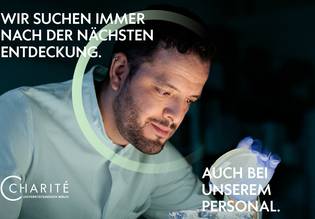Working at Charité
The Peiseler Lab at Charité – Universitätsmedizin Berlin is looking for a highly motivated and talented postdoctoral researcher to join our interdisciplinary team of immunologists, clinician scientists and bioinformatics focused on liver immunology in chronic liver diseases. We have a keen interest in liver myeloid cells and leverage cutting-edge intravital microscopy to investigate liver immune cell behavior to uncover mechanisms of liver disease.
This position is part of the DFG-funded Transregio Collaborative Research Center CRC/TR 412, seeking to address the pathogenic mechanisms in Metabolic dysfunction-associated steatotic liver disease (MASLD) and brings together expertise from Charité Berlin, TU Dresden, MPI CBG Dresden, and the M3 Research Institute Tübingen. The successful candidate will work at Charité under joint supervision by Moritz Peiseler (Charité) and Robert Schwabe (Columbia University, New York). The project will investigate the reciprocal crosstalk of liver macrophages and hepatic stellate cells in the progression and regression of MASLD and fibrosis, utilizing novel mouse models, intravital multiphoton microscopy, and multi-omics technologies (single-cell and spatial transcriptomics).
You can find more information on our scientific mission here.
Charité offers you
Highlights of working in the CRC/ TR 412:
- Prospects for long-term career development as a project leader within CRC/TR 412
- Lab visits and scientific exchange with partner sites: Charité Berlin, TU Dresden, MPI CBG Dresden, and M3 Research Center Tübingen
- Access to postgraduate training and education through the Berlin University Alliance (BUA)
- Hands-on advanced methods courses featuring cutting-edge technologies
- Retreats and networking events fostering collaboration and professional growth
- Commitment to gender-aware research and a diverse, LGBTQ+ friendly, and family-supportive work environment
- Life and research in the vibrant and culturally rich city of Berlin
Information regarding the position
- Paygrade E13 according to TVöD VKA-K. Your job grade depends on your job qualification whereas the experience level depends on the number of working years. The yearly gross salary is hereby provided based on a full time position excluding yearly bonus and additional pay. You may find further information here
- Working hours can be full-time with up to 38.5 hours per week
- The position is limited until 30.06.2029, as it is tied to the project duration
- 30 days of paid vacation per year
- The application period ends on: 07.10.2025
- Position ID: 5244

